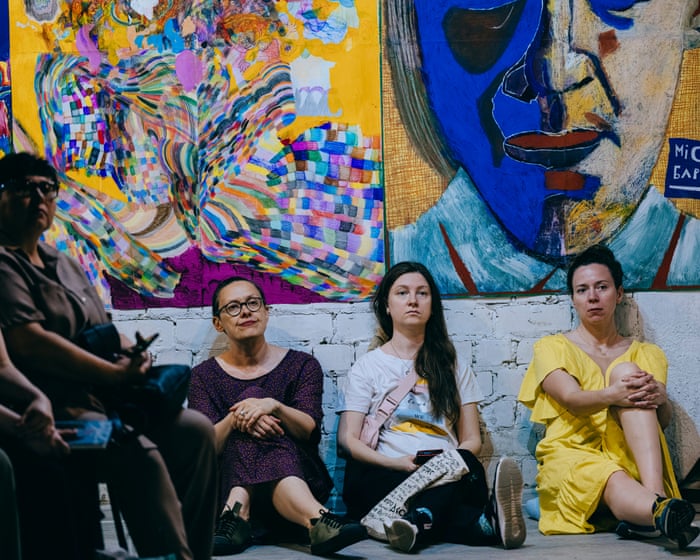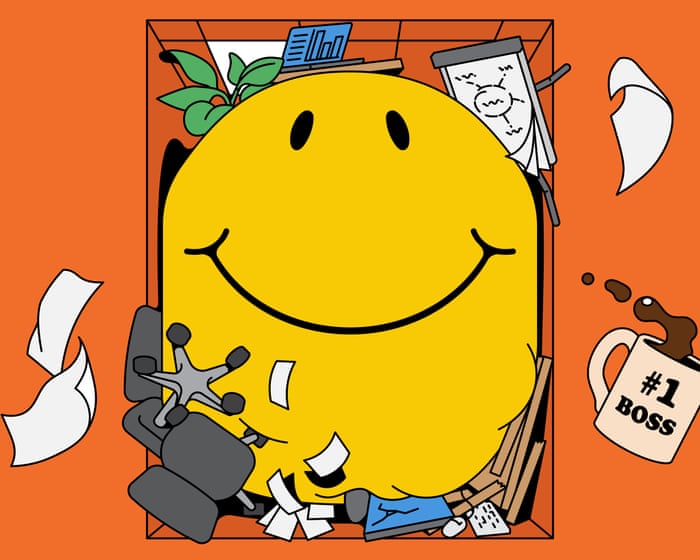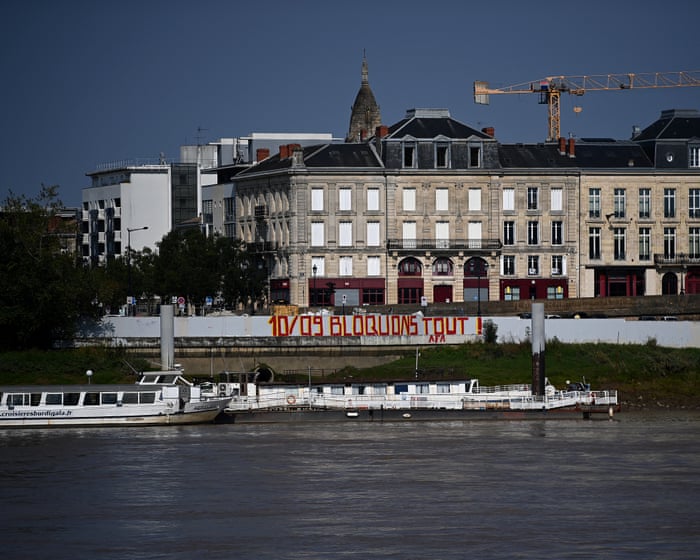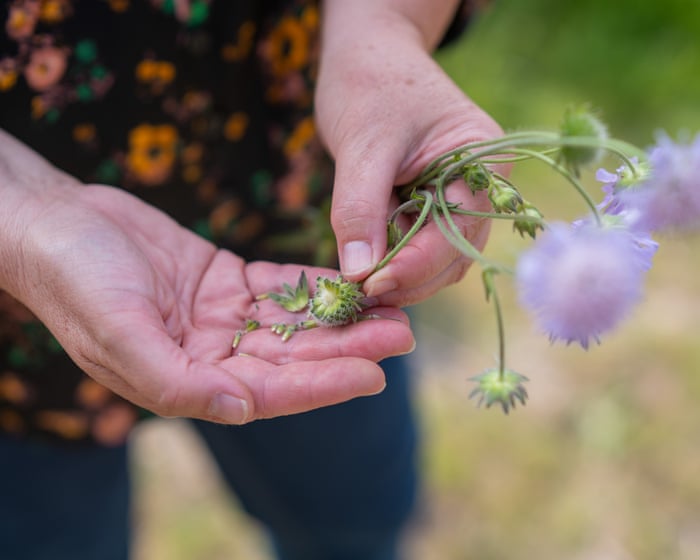Kharkiv, just 18 miles from the Russian border, is a city of contrasts—both cared for and scarred. Public statues stand wrapped in sandbags to shield them from missiles, while flowerbeds in parks remain meticulously tended. The streets are quieter than you’d expect for a country’s second-largest city, yet bookshops, cafés, and restaurants stay open, their business steady.
But the marks of Russia’s relentless attacks are everywhere. Rusted anti-tank barriers, known as “hedgehogs,” line the roads. The grand Derzhprom building, a 1920s constructivist landmark and the city’s architectural pride, now bears deep wounds. Across Kharkiv, shattered windows have been replaced with chipboard. One makeshift panel in the city center even carries a paper cutout of embracing arms and the words: “I love you, beloved Kharkiv.”
Cultural life persists—but mostly underground. Theaters now perform in basements, and bookshops host events below street level. Artist Kostiantyn Zorkin captures this hidden world in his work, imagining wartime Kharkiv as a lone ship in stormy seas, its people sheltered in the hold.
The city’s residents are either those who fled even more dangerous places or those who refuse to let Kharkiv’s spirit die. Staying means making peace with the constant threat of death. Air defenses are scarce, and Russian strikes come fast—often before the sirens even sound.
Yet, even here, poetry thrives. At a recent underground festival, Serhii Zhadan—Kharkiv’s beloved poet, novelist, and now a soldier—read his work to an audience that mouthed along, knowing every word.
“Kharkiv has over a million people,” Zhadan said between readings. “They need culture. This festival reminds them they’re not alone—that others share their values, their fight.”
Organized by publisher Meridian Czernowitz, the event is the first of its kind in Kharkiv, though similar gatherings have taken place in other frontline cities like Odesa and Kherson.
“People come to the shelter, listen to poetry, and for a moment, they’re not at home hearing drones or scrolling through bad news,” says organizer Evgenia Lopata.
In Kharkiv, even underground, life—and art—refuses to surrender.Ukrainian Identity and the Search for Belonging
Evgenia Lopata explains, “Being here means being part of a community that supports one another.” In a city that has long been predominantly Russian-speaking, many are now seeking connection with fellow Ukrainians. Since Russia’s invasion in 2022, a growing number of residents—especially within Kharkiv’s creative circles—have switched to speaking Ukrainian.
“People are searching for their Ukrainian identity,” Lopata says. “Many have made the conscious choice to change their language, and there’s a strong demand for Ukrainian literature.”
All of their books are printed in Kharkiv, she adds, thanks to the dedication of local printing workers. “The least we can do is come here and hold readings.” However, the city’s once-thriving printing industry is now under threat. In May 2023, Russian S-300 missiles struck the Factor Druk printing house, killing seven people and causing severe damage.
### Poetry Amidst War
The festival’s opening reader was Yuliia Paievska, a renowned combat medic known by her call sign, Taira. Captured in March 2022 while treating civilians in Mariupol, she endured months of brutal imprisonment in Russia before her release in June of that year.
To preserve her sanity, Paievska began writing poetry in captivity—scrawling words on her cell wall with a piece of plaster, despite the risk. “It pulled me out of the abyss,” she says. Though she couldn’t recall the exact words later, the emotions remained. After her release, she continued writing.
“Those scribbles were a way of staying human, of holding onto my mind,” she explains. “Everything in Russian prisons is designed to strip away your control. The only things I could control were my breathing and my poetry.”
### Life in Wartime
Filmmaker and poet Iryna Tsilyk took the stage next, reading from her work, including My Day—a poem that captures the jarring contrasts of life in wartime Kyiv: taking shelter from air raids, making breakfast for a child, weeping in the shower, picking wine at the supermarket.
She also spoke about the growing divide in Ukrainian society, where people with vastly different war experiences struggle to understand one another.
Tsilyk shared her own story—when her husband, novelist Artem Chekh, returned from the frontlines in 2016 (he later fought in Bakhmut in 2023). “You wait six months for this moment, and then a stranger walks in—shoulders slumped, eyes hollow—because he’s spent ten months in the trenches,” she told the audience. “You don’t know how to be together, how to talk, how to rebuild intimacy. Many couples face this, and some don’t survive it.”
### A City Under Siege
The festival audience gathered in Kharkiv, a city still under threat. Nearby, the statue of Mykola Gogol stood wrapped in protective coverings—a stark reminder of the ongoing danger from Russian missiles. Anti-tank barriers, known as “hedgehogs,” lined the streets, reinforcing the reality of war.In the streets of Kharkiv’s city center, many audience members—mostly in their 20s and 30s—stay for the full program of talks and readings, which runs from lunchtime until 8:30 p.m. Among them is IT worker Olena Dolya, who has a matter-of-fact attitude about staying in the city. “My windows and balcony are still intact,” she says. “And I feel more at home here than anywhere else.”
She makes regular trips to Kyiv for a richer cultural life. “I need it, and I miss it,” she admits. These days, she reads more than she has since childhood. “It’s one of my ways of staying sane—it calms me,” she explains.
“Culture is so important during war,” says copywriter Arsenii Vasyliev, another attendee. “It reminds you that you’re human.” His girlfriend, former librarian Sofia Kyshkovarova, adds, “This festival is proof that Kharkiv is still alive.”
According to writer Serhiy Zhadan: “War is a state of extreme chaos, of complete breakdown. I believe culture, more than anything else, can express these experiences and give them meaning.”
“In 50 or 100 years, if humanity—and books—still exist, we’ll understand this war mostly through literature.”



